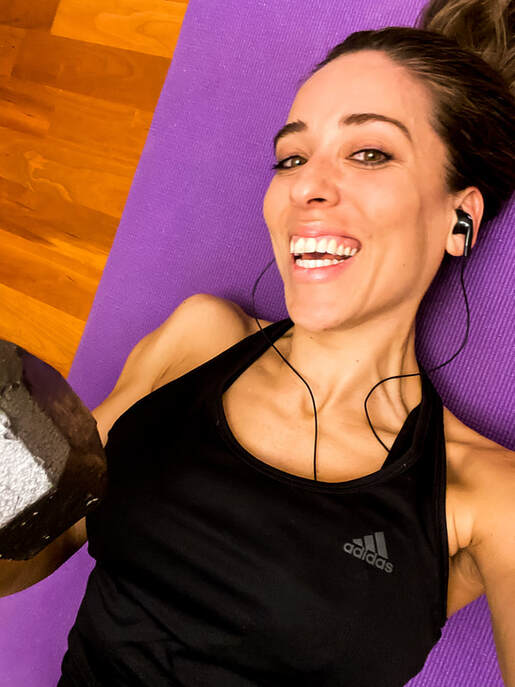NUTRITION MATTERS |
|
|
NUTRITION MATTERS |
|
|
 After working in the healthcare and fitness industry for year, one of the biggest lessons I've learned is that staying active is one of the single best things you can do for your long-term health. Many years ago, I worked as a dietitian in the rehab unit and saw far too many clients because of a fall that left them immobile and unable to care for themselves. Now as a sports dietitian, the client is much different, but some of the same problems surrounding inactivity remain. That's why I recommend that everyone who can do so safely, incorporate resistance training each week. It will keep your body strong, mobile, and in good metabolic shape. Especially as we age, maintaining muscle tissue is a vital part of staying healthy. The reason is simple. Starting some time in our forties, we progressively begin to lose a small percentage of muscle mass each decade. Once thought to be a natural part of aging, research has proved it is not. The progression can be significant (up to a 30% decline), and lead to a condition called sarcopenia. It is now classified as a disease and is defined as the age-related loss of skeletal muscle mass and function. Sarcopenia is the most important cause of frailty, leading to the inability to move and function independently as we age. The good news however, is that the loss of muscle mass and function always responds to resistance training. In fact, resistance training is the established treatment for sarcopenia. Additionally, muscle mass contributes to a notable portion of your metabolism; about 20 percent from muscle mass, whereas fat (tissue) contributes 75 percent less energy each day! As we get older, the slowing of our metabolic rate can further be attributed to the loss of muscle due to physical inactivity (i.e. we stop moving as much as we once did). Furthermore, those that perform consistent resistance training, increase their muscle tissue's sensitivity to insulin and glucose. This is beneficial because consistent resistance training may be used as a beneficial therapeutic approach to reduce the risk of developing metabolic diseases such as type 2 diabetes and obesity. As someone who has worked in the health and fitness industry, take it from me. If you want to stay healthy and fit throughout your life, start by adding resistance training just a few times a week. I promise you won't regret it! New to Resistance Training? |
AuthorKristin is a runner, sports dietitian, and foodie. She's also been plant based for 25 years! Archives
June 2021
Categories |
All Sessions are held Virtually.By appointment Monday - Friday
|
ContactKristin.Kabay@gmail.com
|